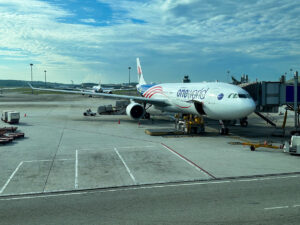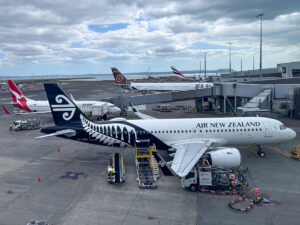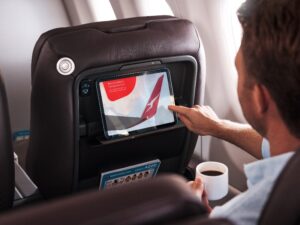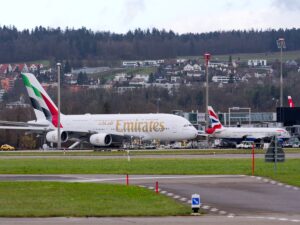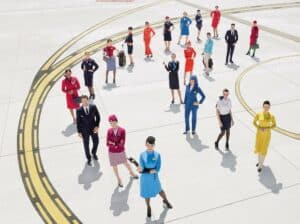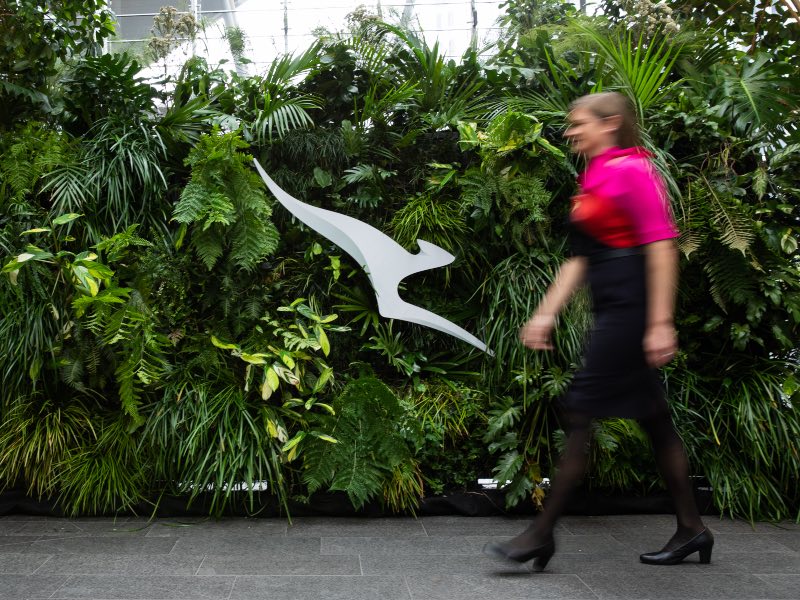
In late 2021, Qantas and Etihad Airways became the first airlines in the world to offer easier elite status qualification to frequent flyers in exchange for purchasing carbon offsets, donating to environmental causes and making more sustainable choices.
With the Qantas Green tier, frequent flyers can earn 50 status credits (or 10,000 bonus points) by completing actions such as offsetting carbon emissions, donating points to charity, purchasing sustainable wine or solar panels, staying at eco-friendly hotels and taking a sustainability quiz.
Meanwhile, Etihad has launched “Conscious Choices”. Etihad Guest members can earn tier miles – which count towards status – by carrying less baggage on board, offsetting emissions, donating miles or purchasing sustainable products with miles.
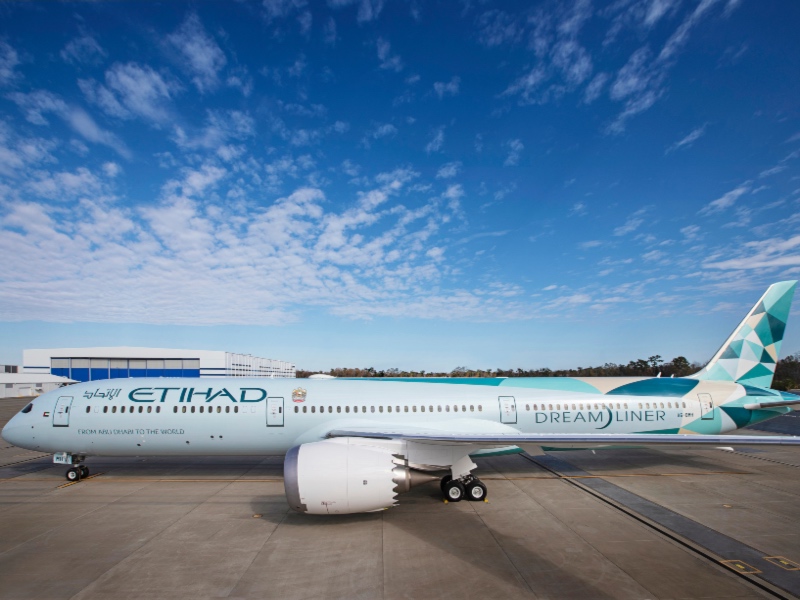
Both Qantas and Etihad claimed in late 2021 to be “the first airline in the world to reward frequent flyers for being more sustainable in the air and on the ground”. Fast forward just 10 months, and this is now starting to become a bit of a trend as more airlines seek to address (or at least be seen to be addressing) their impact on the environment.
Flying Blue members can earn extra XP
With Flying Blue, the frequent flyer program of Air France, KLM, Kenya Airways, TAROM and Aircalin, status can be attained by earning XP.
Since March 2022, Flying Blue members can earn 1 XP for every 2,000 miles donated to charities that support sustainable causes or for purchasing sustainable aviation fuel.
Some types of donations are also possible using money. Cash donations earn XP at a rate of around 1 XP per €10 (~AUD15) donated, or at slightly higher rates for larger donations. Most of these options are offered as an optional add-on when purchasing a ticket with Air France or KLM.
Some bloggers have worked out that this makes it possible to earn Flying Blue Silver status with one round-trip ticket and a generous donation (which could be tax deductible for residents of countries such as France).
Lufthansa’s new Green fares
All airlines offer multiple fare categories that include different inclusions at various price points. Usually, the more expensive fares just offer things like more points and greater flexibility to change flights.
But the Lufthansa Group, which includes Lufthansa, SWISS, Austrian Airlines and Brussels Airlines, this year launched a new fare category that includes “full CO2 compensation in the price”.
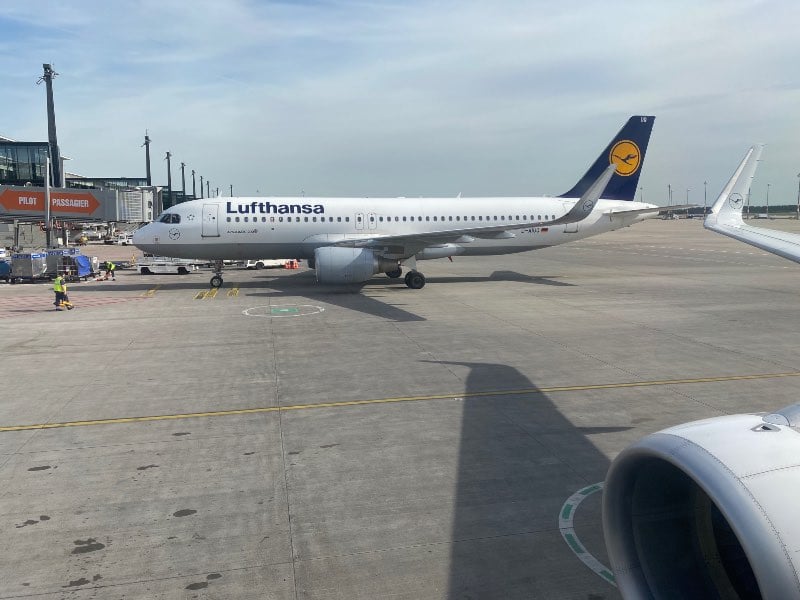
Initially available on flights booked from Scandinavia to destinations within Europe on a trial basis, Green fares will automatically include carbon offsetting and a sustainable aviation fuel purchase. They also include 20% more status miles and award miles, when crediting the flight to Lufthansa’s Miles&More program. However, as these tickets book into the same fare class as all other categories, no additional points or status credits would be earned when crediting to other Star Alliance frequent flyer programs.
The Lufthansa Group’s Economy Green fares are priced exactly the same as Economy Flex, while Business Green fares are priced identically to Business Flex – but don’t include any of the additional benefits of a Flex ticket compared to a Classic ticket.
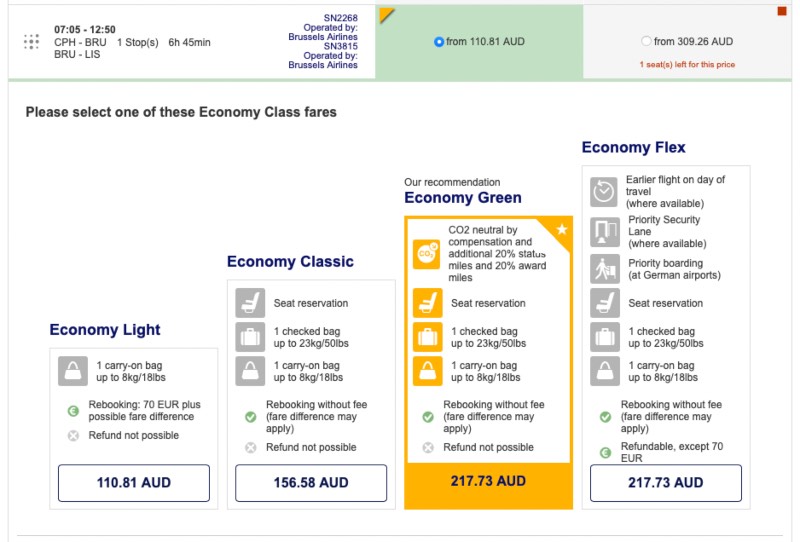
The elephant in the room
These developments have all taken place in the past 10 months. As the need to address the environmental impact of aviation grows, it’s likely we’ll see even more airlines leveraging their loyalty programs to incentivise more sustainable behaviour in the future.
The obvious elephant in the room here is the fact that frequent flyer programs, by design, encourage people to fly more.
This is perhaps a discussion for another time, but there is an argument that the ability of loyalty programs to influence consumer behaviour could be leveraged a lot more to incentivise actions which are beneficial to the environment – such as offsetting emissions, choosing a non-stop flight or catching a train instead of flying. With German railway company Deutsche Bahn now a Star Alliance “intermodal partner”, the industry at least appears to be slowly heading in that direction.
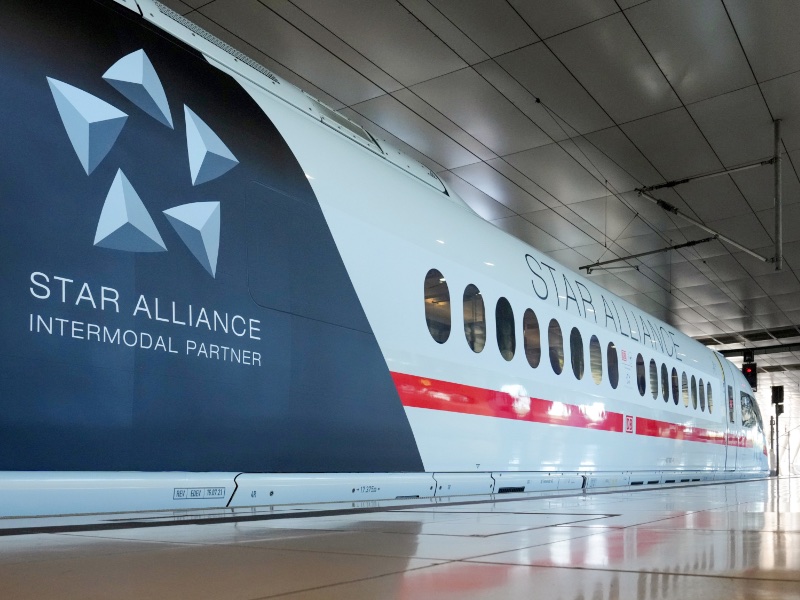
A lot more work will need to be done in this space in the coming years. But ultimately, if initiatives like Qantas’ Green tier allow frequent flyers to earn the extra status credits they need to retain their status by purchasing carbon offsets or solar panels, instead of flying somewhere unnecessarily, that’s probably a good thing.
You can leave a comment or discuss this topic on the Australian Frequent Flyer forum.

